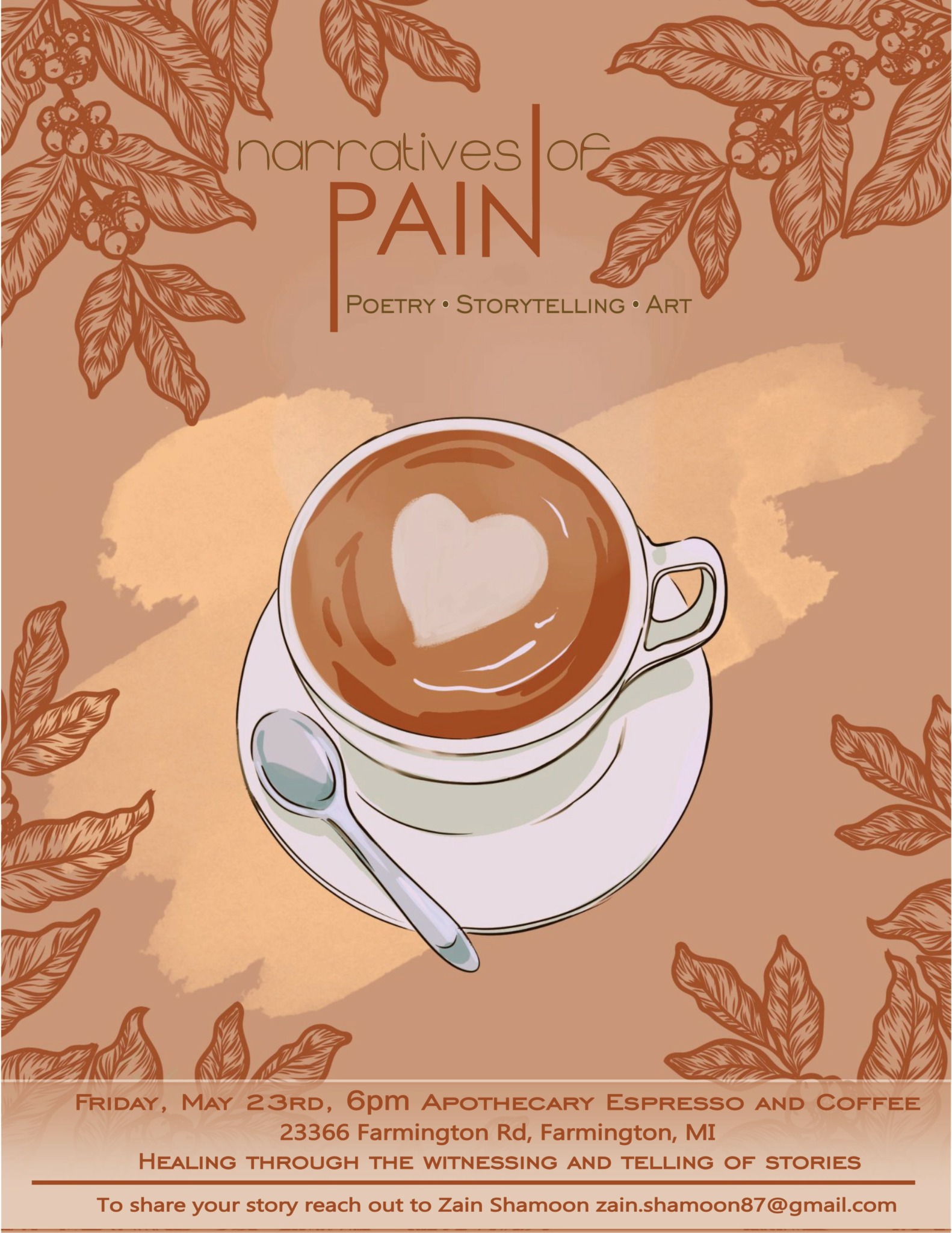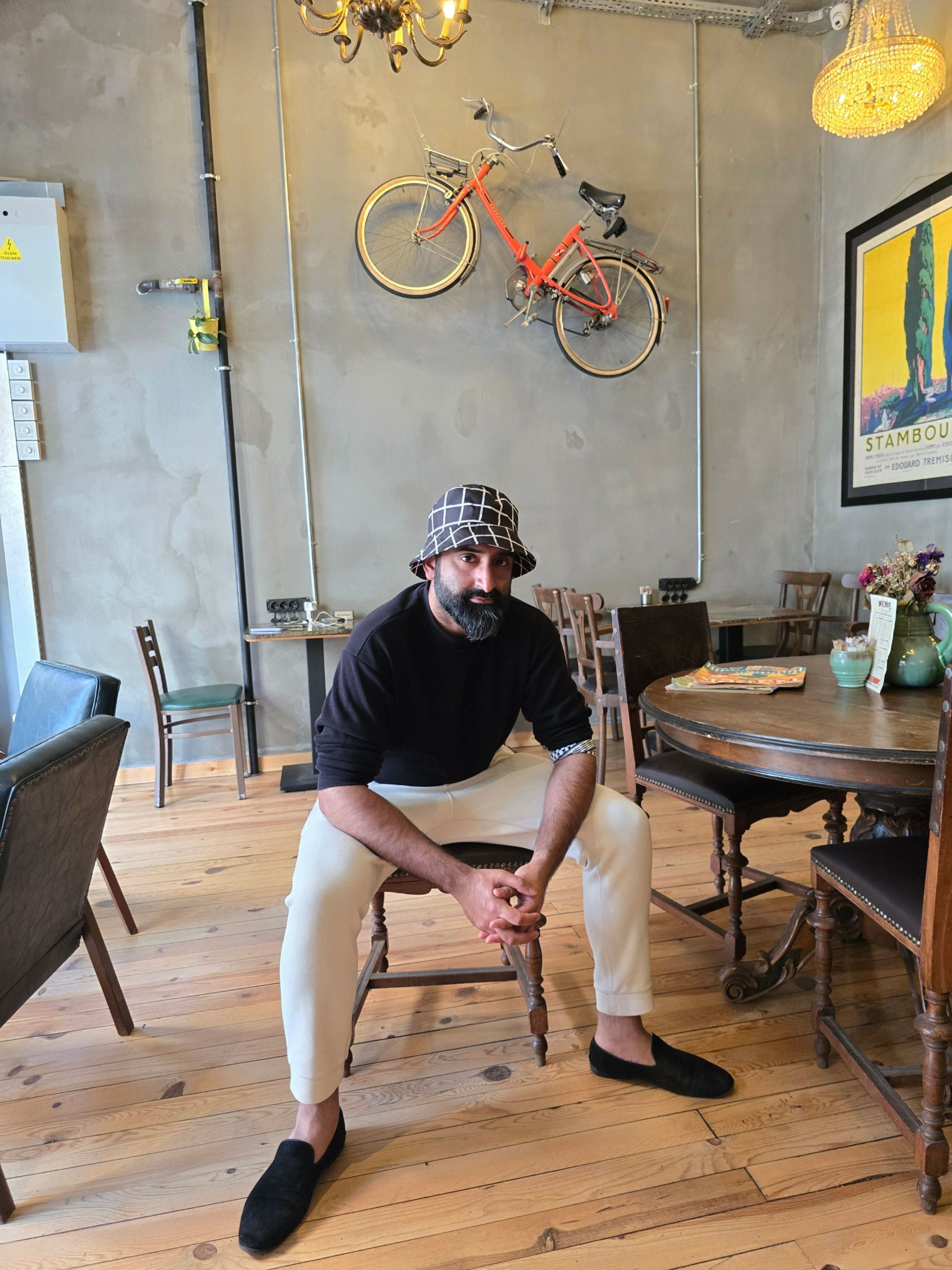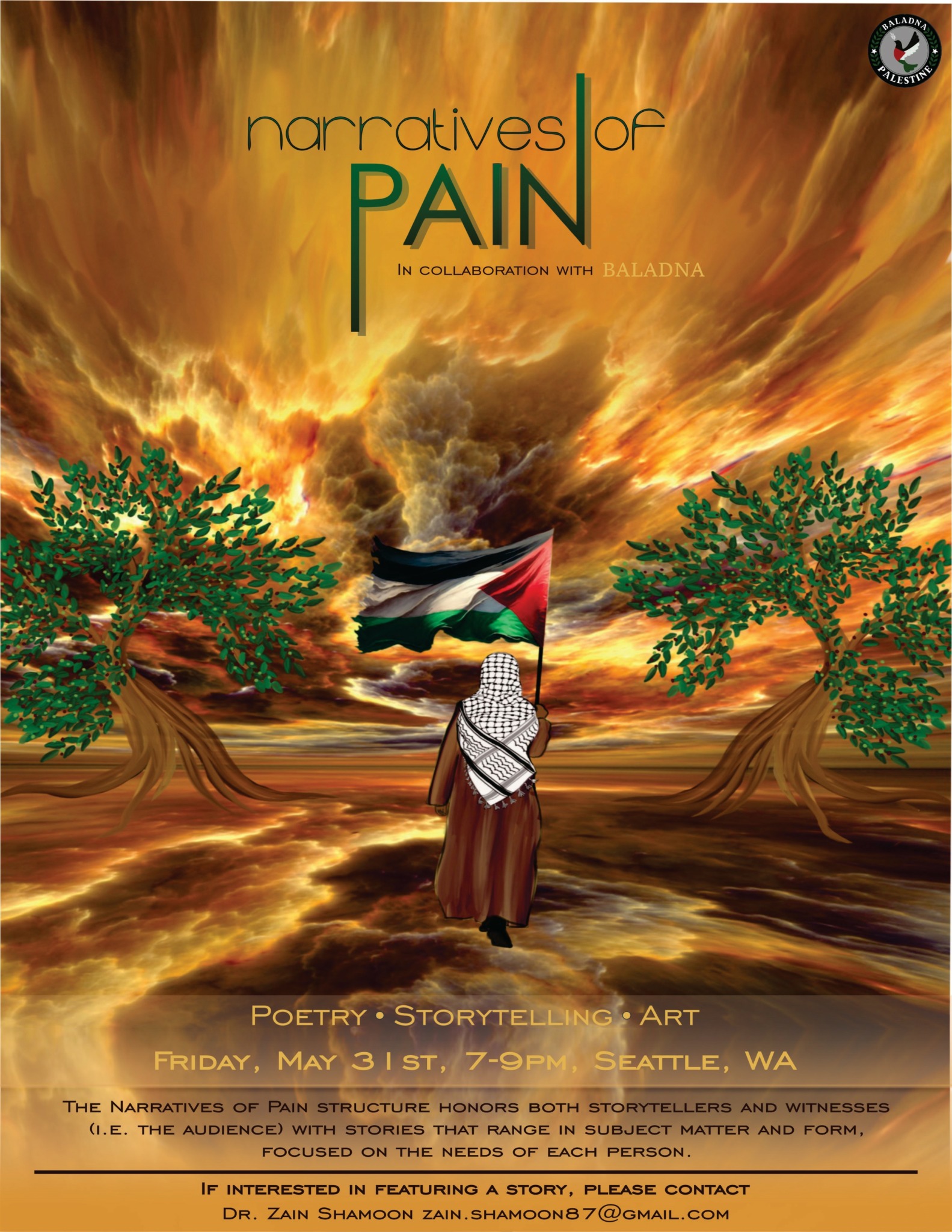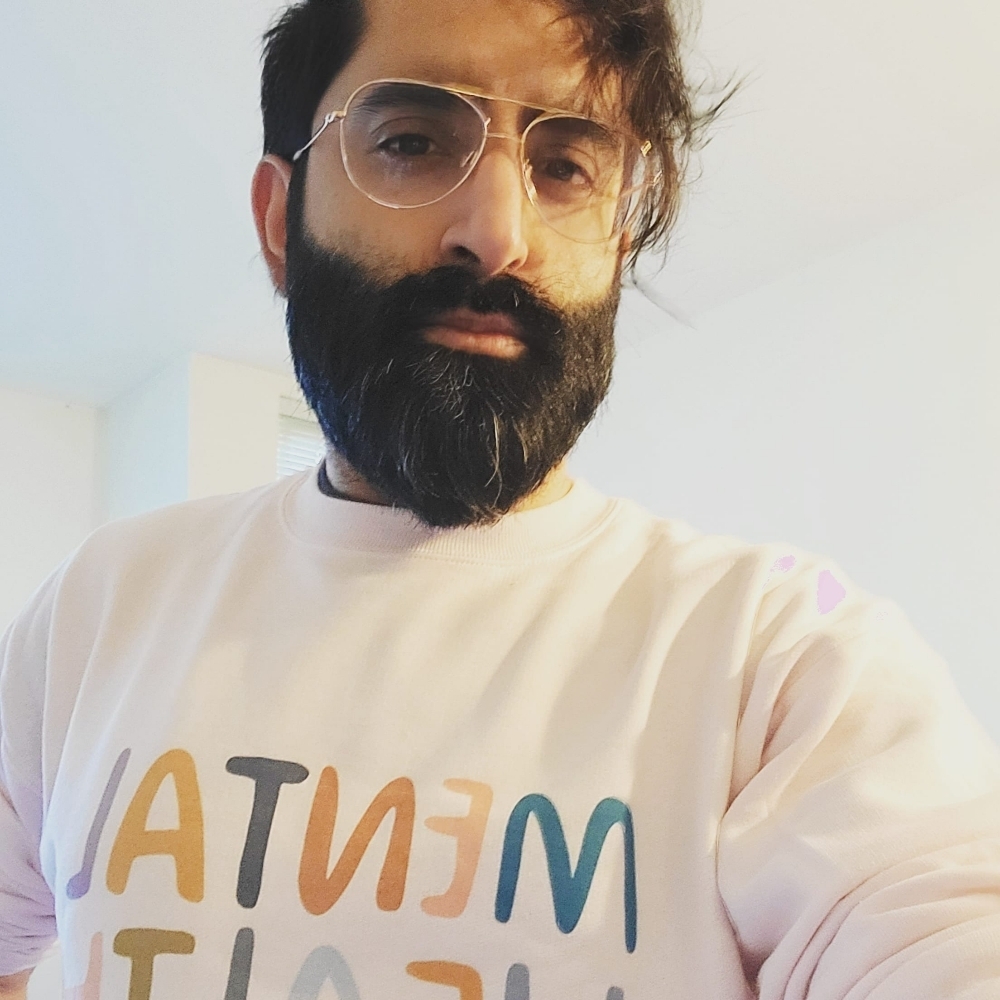We caught up with the brilliant and insightful Zain Shamoon a few weeks ago and have shared our conversation below.
Zain , thanks for joining us, excited to have you contributing your stories and insights. We’d love to hear about a project that you’ve worked on that’s meant a lot to you.
The Narratives of Pain storytelling project began in 2015, with Hammad Ali. This was a labor of love to bring therapeutic elements of mental health services out from private offices, and into community engagement through community gathering.
We believed in healing through the telling and witnessing of stories. This is a knowing not born out of western psychology, but instead from our collectivist traditions (various cultural diasporas that utilized storytelling and gathering for the purposes of human development and wellness).
Narratives utilizes the concept of witnessing without reactivity. To listen to witness, rather than to respond or contradict (an art that is increasingly interrupted in society). We honor storytellers by supporting the agency of their stories, in terms of the framing and form of their stories.
This space is created by therapists who are reclaiming their diasporic legacies of storytelling, beyond the limiting confines of western psychology, and instead embracing the power of gathering.

Zain , love having you share your insights with us. Before we ask you more questions, maybe you can take a moment to introduce yourself to our readers who might have missed our earlier conversations?
My name is Dr. Zain Shamoon. First and foremost, I am a storyteller, and I am the son of two inspiring human beings. My mother, Ulfat Shamoon, has always modeled gathering and healthy socialization with community members. During my father’s life, he was a director of social services and supported us in understanding the importance of accessing resources to support human wellnesses.
I received my PhD in Human Development and Family Studies in 2017, from Michigan State University (MSU). I studied domestic violence, and was specifically interested in excavating culturally sensitive services for South Asian survivors. I previously received my Masters in Couple and Family Therapy in 2011 at MSU.
I have been practicing individual, couple, and family therapy for 15 years. I also served as a core faculty members in a small liberal arts school in the west coast. I am choosing not to name them at this time because I find their leadership to be extremely exploitive and oppressive (the antithesis to missions like Narratives of Pain).
Currently I serve as a manager for behavioral health services at ACCESS in Dearborn, Michigan.
Oh yeah, and I used to be a slam poet and performance artist in my twenties :) I should get back to that soon, especially since poetry was my first culturally sensitive therapist!
Narratives of Pain is a labor of love that combines all of my life’s major components: belief in people’s abilities, belief in gathering, the importance of mental health, and the healing properties of storytelling.

Have any books or other resources had a big impact on you?
The Autobiography of Malcolm X (El-Hajj Malik El-Shabazz) taught me about human strength and the importance of collective liberation, and gosh, what a storyteller!
bell hooks taught me to embrace interdependence and stop pathologizing our need for one another in community. A sense of community is the most important attachment need in life.

How can we best help foster a strong, supportive environment for artists and creatives?
Trust the storytellers, stop getting in their way, stop stealing their ideas, and stop taking away their spaces.
Contact Info:
- Website: https://muslimmentalhealth.psychiatry.msu.edu/researchers/zain-shamoon-phd
- Instagram: https://www.instagram.com/narrativesofpain/
- Other: Previous interviews and info about Narratives of Pain:
https://www.apothecaryfarmington.com/event-details/apothecary-presents-narratives-of-pain-2025-02-14-18-00
‘Narratives of Pain’ hosts community storytelling event at MSU
https://arabamericannews.com/2017/08/25/narratives-of-pain-healing-through-stories/

Image Credits
Narratives of Pain flyers created by Kendra Azari


